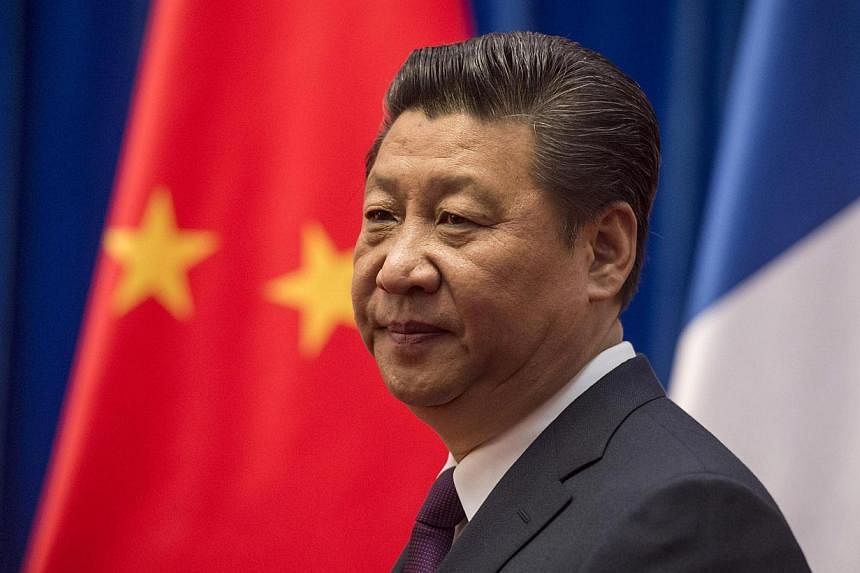BEIJING (Reuters) - Following in the footsteps of Mao Zedong Thought, Deng Xiaoping Theory and the "Three Represents", China is promoting President Xi Jinping's "Four Comprehensives", calling for the rule of law and enforcement of Communist Party discipline.
State media has ratcheted up promotion of the doctrine in the run-up to the country's annual parliamentary session in March.
The People's Daily, the ruling Communist Party's most important mouthpiece, praised the slogan in a front-page commentary on Wednesday. The commentary also appeared on state television and other party-owned news outlets.
The "Four Comprehensives" refer to China working "comprehensively" to build a moderately prosperous society and strengthen reforms, rule of law and party discipline.
Party discipline is Communist Party jargon for efforts to fight corruption. A campaign against graft has formed the centrepiece of Mr Xi's administration and the leadership has vowed to target both high- and low-level offenders.
Mr Xi has referred to the "Four Comprehensives" in past months but the People's Daily editorial signals a wide endorsement.
Mr Xi's best-known slogan so far has been his call for the "Chinese dream", an ambiguous catchphrase leaders have said refers to national rejuvenation in everything from ties with Taiwan to China's space programme.
Critics say pursuing rule of law is futile without granting independence to courts, which are controlled by the Communist Party.
China's top court on Thursday said it rejected the notion of Western-style judicial independence and separation of powers.
Former President Jiang Zemin was famed for his "Three Represents", which embraced private entrepreneurs and were written into the party's constitution.
Mr Hu Jintao, Mr Xi's immediate predecessor, was primarily known for the economic doctrine of "scientific development".

